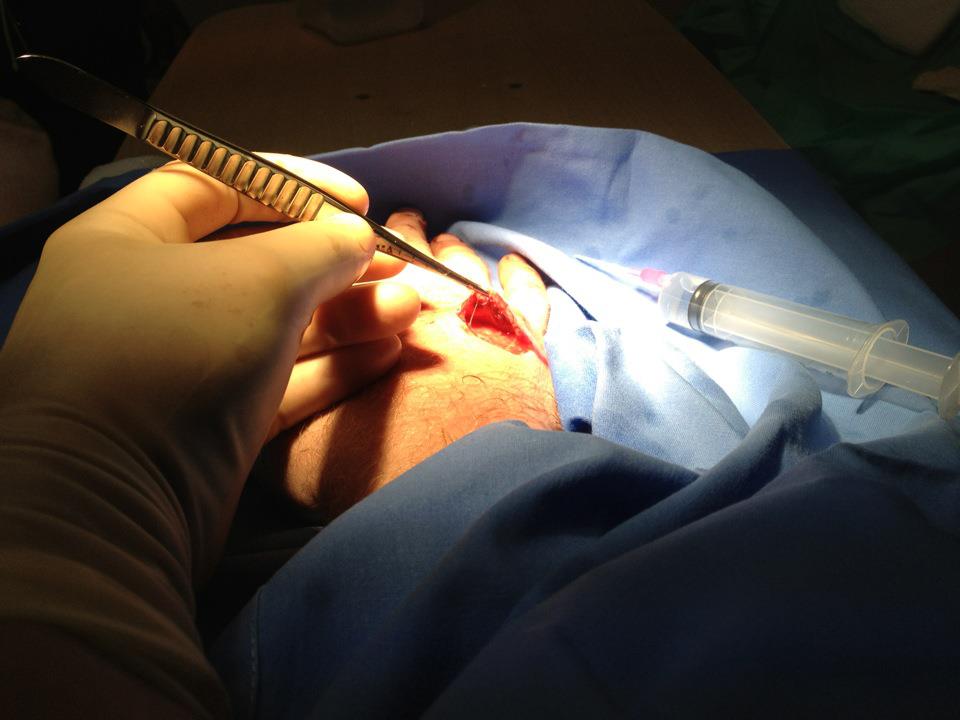The hand is the most useful appendage and its versatility allows us to manipulate the environment to our benefit. It is used in almost all daily tasks.
It, therefore, makes sense that we take good care of our hands and avoid exposing them to unnecessary damage.
Dr Vernon Wessels, from ER24, said, “Within the work environment, hand injuries are probably the most common injury found and can vary from a simple paper cut to traumatic amputation.
Often, the injury could have been prevented had simple rules been complied with.”
He provided the following tips:
1. Although the hand is a versatile tool, do not use it in place of a tool designed for a specific purpose.
2. When using knives or potentially sharp instruments like screwdrivers, be alert to where this instrument could go if it slips. Avoid cutting towards your hands (or any other body part for that matter). Avoid handling the blade edge with unprotected fingers.
3. Do not stick your hand into an area if you cannot determine if there are possible dangers that await you. Dangers could include injury due to sharp objects, animal bites, insect stings or hot or very cold items.
4. Use heat-insulating gloves to protect your hands when handling potentially hot items, especially during welding and cooking.
5. Wear the relevant work gloves to protect your hands during manual tasks to protect your hands against chaffing, abrasions and minor cuts.
6. Keep hands clear of the danger area around fast-moving machinery, especially drive belts and moving blades.
7. Keep hands as clean as reasonably possible. This will prevent slippages and assist in limiting contamination and infection risk in the event of accidental injury.
8. Keep your nails short and neatly trimmed if you do a lot of manual work as this limits the risk of nail avulsions.
9. Treat any cuts or puncture wounds immediately and seek medical assistance if these wounds are deeper than just the superficial skin layer (gaping wounds or deep penetrations). Underlying tendons can be partially damaged or completely severed which can lead to loss of function and may require surgical repair. Infection of the hand is a serious condition and can lead to permanent disability. Even a small wound or insect bite can lead to a devastating infection. Any swelling, redness and warmer skin in the area of a wound or insect bite must be seen to by a healthcare worker in order to identify and treat infection early.
10. Nail and nail fold infections due to regular exposure to water (especially warm, dirty water) are common. These infections are caused by a fungus and may require a long course (several months) of treatment to cure. Preferably, wear waterproof gloves in these situations to prevent it from developing.
Examination, rescue gloves
In emergency services, examination gloves are used to protect the healthcare worker from possible infectious agents and also to protect the patient from unnecessary contamination that may be present on the healthcare workers hands (especially when managing wounds).
“Therefore, patients should never feel offended if the healthcare worker fits his/her gloves before managing them. It is ultimately in everybody’s interest to protect and be protected,” said Dr Wessels.
Rescue gloves should be used to protect against broken glass and other sharp items, to handle tools during rescue situations as well as to protect against chaffing in rope rescue situations.
“Look after your hands and they will provide you with a lifetime of use,” said Dr Wessels.
ISSUED BY:
Chitra Bodasing Harduth
ER24 Spokesperson
Also view:
